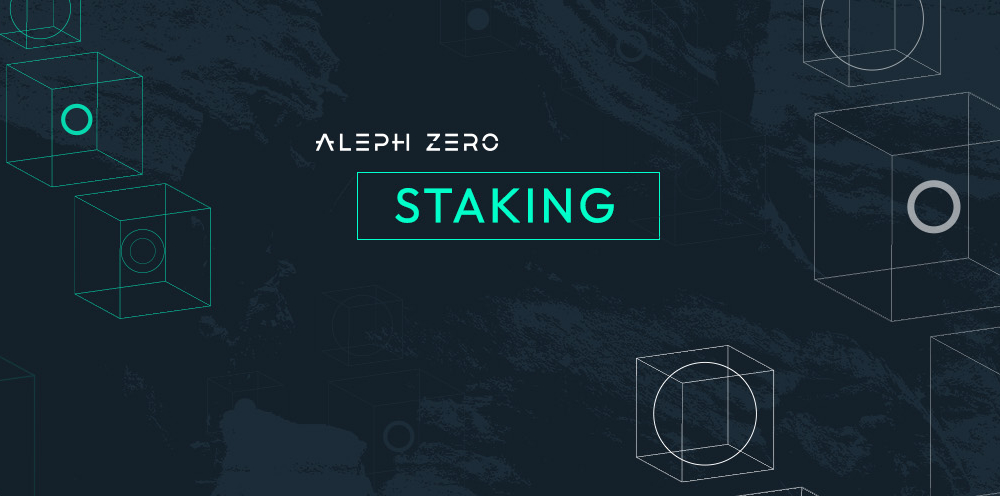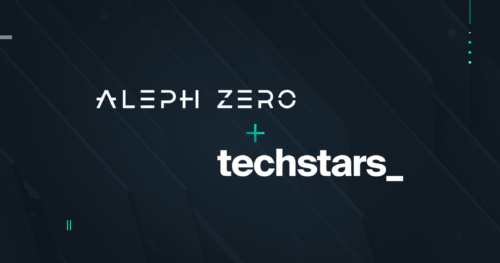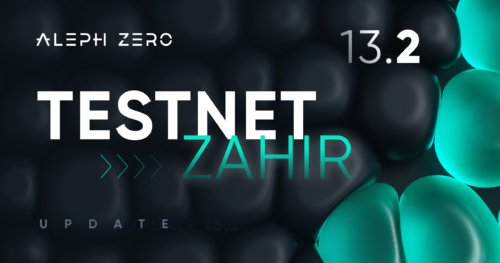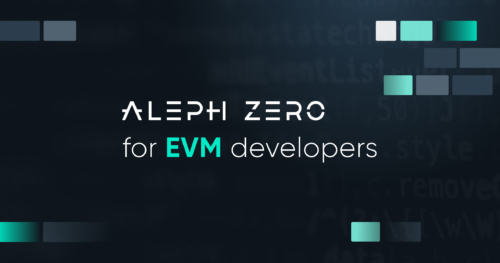Staking and Becoming a Validator on Aleph Zero. How Will it Work?
Jan 12, 2022

It’s good to hodl! Learn more about how staking your AZERO will contribute to the Aleph Zero network, and what you can get in return.
With 2022 upon us, the Aleph Zero team is proud to present the initial proposition for becoming an Aleph Zero validator as well as delegating and staking your AZERO.
Article updated on March 18th, 2022.
AZERO Inflation of 30M Per Year
In order to discuss staking, first, we have to cover how inflation and the distribution of the newly generated AZERO coins will look like on the Aleph Zero network. Currently, a total of 30M new AZERO coins are minted per year, and the funds will be split between the validators and delegators, as well as the ecosystem fund.
Inflation funds split:
- 90% of the inflation coins will be distributed to validators and nominators;
- 10% of the inflation coins will be added to the Ecosystem Fund.
AZERO from the Ecosystem Fund will be used to cover the following:
- Infrastructure costs. Some of the funds may be used for the purpose of maintaining the infrastructure that is beneficial for the Aleph Zero ecosystem, for example to pay upkeep costs for the bridges to other platforms, or to pay relayers (either working as part of the bridge, or other system).
- Ecosystem support. The remaining part of the 10% will be regularly distributed as grants, investments, or other forms of support towards products related to Aleph Zero. Once the decentralized governance is live on Aleph Zero, the allocation of grant funds will be upon the governance.
Aleph Zero Validators and Delegators
In order to become a candidate for a validator on the Aleph Zero network, one will need to have a minimal stake of 25’000 AZERO and align with the hardware requirements. The minimal stake as well as hardware requirements might be subject to change, however, they will be infrequent and communicated well in advance. Eventually, the minimal stake will be decided upon by decentralized governance.

While all validators will accrue rewards proportionally to their stake (and the stake delegated to them), not all of them will be responsible for producing and validating blocks at a given time. That’s where the concept of the hot-seat rotating committee comes into play.
Looking to become a validator?
Leave your email at testnet.alephzero.org.
The committee will be formed from a group of selected validators. Gradually, Aleph Zero seeks to grow the committee size to 100 validators. As we continue to implement improvements and optimizations, the committee size may grow even bigger with time.
Each epoch, the committee will be randomly chosen from a larger pool of potential candidates and will rotate periodically.
Not only validators are able to use stake to secure the Aleph Zero network, the other important role is a nominator. Nominators can vouch for validators by delegating their stake to them. In consequence, besides their own stake, the stake delegated to a validator will be automatically included to count as a part of their validating power. As each nomination incurs multiple on-chain actions, there is also a need for a minimal amount a stake the nominator has, currently it is defined to be 100 AZERO, and similarly as minimal validator stake it may be subject to change in the future.
In the case of detecting actively malicious behavior from the validator, funds delegated to that validator will be subject to slashing conditions to the same extent as the validator’s own funds. A validator can define an arbitrary commission to be used to split the rewards with the nominators.
Aleph Zero Staking Rewards
Whenever a validator or delegator wishes to retrieve their stake, the coins will progress into the unbonding state in which they will not be possible to use for an additional period of 14 days, without accruing rewards.
In total, 30M*0.9 AZERO will be distributed among validators and nominators each year. Out of this quota, each validator will get a reward proportional to their stake increased by the commission it takes from their nominators’ stake. Similarly, nominators get rewards proportional to their stake decreased by the validator’s commission.

The image below presents a scenario where 50% of total AZERO is staked, and one is delegated their AZERO to a validator with 3% commission and 99% uptime. What’s worth pointing out is that—according to the attached formula—the reward will be lower whenever the number of staked coins is lower, the validator commission is higher, or the uptime is less than perfect.

An example of Aleph Zero staking rewards assuming a 50% of total AZERO supply staked and one delegating their stake to a validator with a 3% commission and a 99% uptime. The conditions may differ depending on the total staked amount as well as the commission chosen by the validators and their uptime.
En route to Scale and Decentralization
Having just recently launched the Aleph Zero Mainnet, we’re excited to say that the team has been making significant progress in building the infrastructure allowing for external nodes to safely join the network. After several weeks of strengthening the Aleph Zero chain, as well as upgrading its infrastructure and tooling required to scale, the main focus of the team remains on validation, delegation, staking, as well as enabling WASM smart contracts.
Thank you for being with us on this journey!


